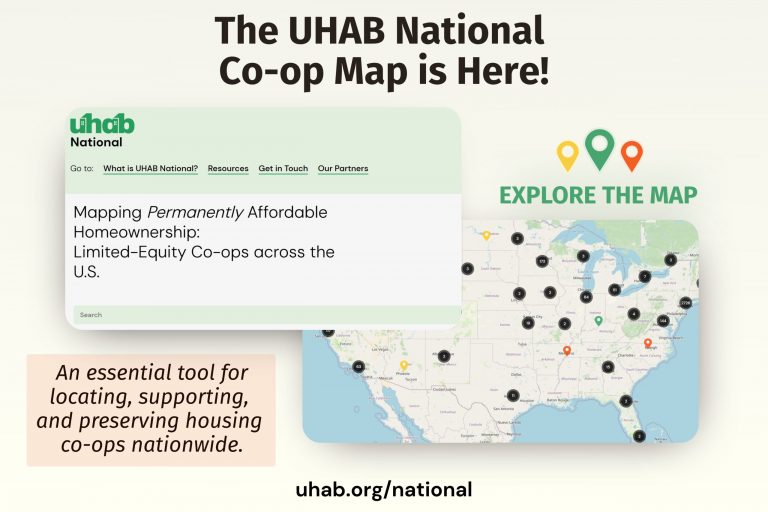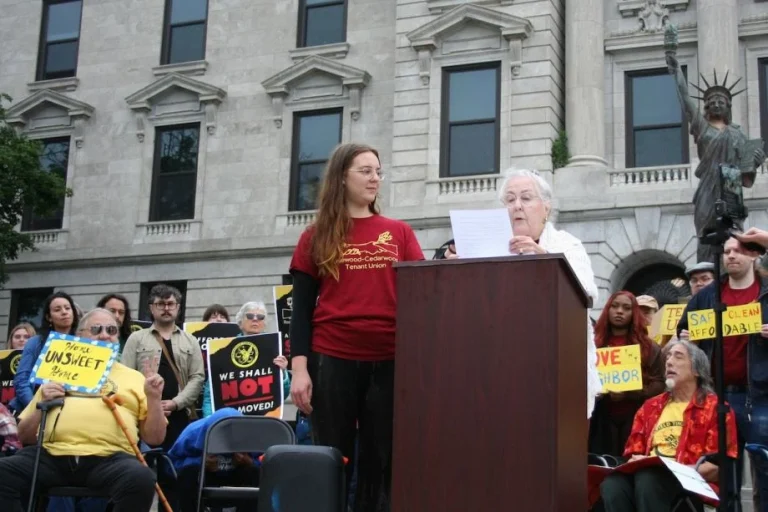UHAB Launches National Map Of Limited-Equity Housing Cooperatives
UHAB is thrilled to announce the launch of the National Co-op Map, the most comprehensive online tool tracking limited-equity housing cooperatives across the United States. After years of research, development, and community input, this highly anticipated relaunch features a cleaner design and more detailed, up to date data. Housing organizers, residents, and advocates have consistently expressed the need for a centralized resource like this—one that reflects the true scale and reach of the cooperative housing movement.
This interactive, community-powered resource allows users to explore housing co-ops, submit updates, and access resources to support cooperative housing development, preservation, and organizing.















